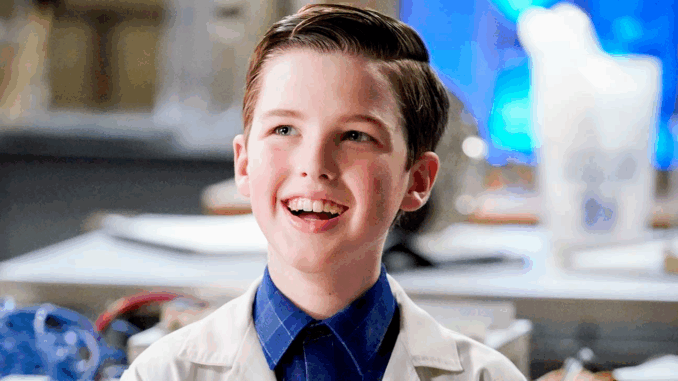
With its final episode now behind us, Young Sheldon closes a chapter not only on a beloved character but on a cultural phenomenon that quietly reshaped how television portrays intelligence, childhood, and learning. For seven seasons, the CBS series gave audiences more than laughs — it gave them permission to be curious, to ask questions, and to be unapologetically different.
A Role Model for the Gifted, Awkward, and Curious
At the heart of Young Sheldon was a simple but powerful idea: smart kids are still kids. They need love, support, and understanding — maybe even more than most. Through Sheldon’s struggles and triumphs, the show humanized what it means to be “gifted” in a world that doesn’t always know how to handle genius.
Iain Armitage’s performance resonated strongly with young viewers, particularly those who felt out of place in traditional classrooms. Teachers and parents across the U.S. have reported children saying, “I feel like Sheldon,” — not as a joke, but as a reflection of identity.
One elementary school teacher in Austin, Texas, shared:
“Young Sheldon helped some of my students realize that being smart isn’t weird. It’s something to be proud of.”
Boosting Interest in Science and Math
While The Big Bang Theory brought science into the mainstream, Young Sheldon brought it to the playground. The show didn’t just drop scientific references for laughs — it wove concepts like string theory, classical physics, and even philosophy into the everyday life of a child.
This storytelling approach made STEM topics feel approachable, even fun. Sheldon’s love for learning sparked curiosity in countless young fans, many of whom have taken an interest in science clubs, reading, and even advanced classes.
According to a 2024 survey by the National Education Foundation, over 35% of students aged 10–15 who watched the show reported feeling more confident about being “smart” or different in school.
Redefining the “Boy Genius” Trope
In previous decades, child geniuses in media were often arrogant, unrelatable, or comic relief. Young Sheldon changed that by grounding its main character in emotional reality.
Viewers saw Sheldon cry, struggle to make friends, fail at sports, and wrestle with anxiety — all while maintaining his passion for learning. These vulnerabilities made him not just brilliant, but believable. And in doing so, the series redefined what a “boy genius” could be: human, heartfelt, and still growing.
Starting Family Conversations

Perhaps one of the show’s most underrated accomplishments was how it opened up family discussions — about parenting, mental health, gifted education, and personal boundaries.
Parents found themselves understanding their own children better through the lens of Mary and George Cooper’s challenges. Siblings saw themselves in Missy’s feelings of being overshadowed, or Georgie’s need to prove himself in different ways.
As one viewer on Reddit put it:
“Young Sheldon didn’t just give us a window into Sheldon’s life — it gave us a mirror for our own families.”
Where Do We Go From Here?
As Young Sheldon signs off, it leaves behind a legacy that goes far beyond the Big Bang universe. It gave a face to children who often feel invisible. It celebrated education not just as a tool, but as a passion. And it reminded viewers that genius comes in many forms — often wrapped in layers of doubt, awkwardness, and heart.
While the upcoming spinoff Georgie & Mandy’s First Marriage promises more Cooper family adventures, fans already know that nothing will quite replace the magic of Sheldon sitting in a cardboard time machine, explaining quantum mechanics with a juice box in hand.
Final Words
In a time when “smart” was often mocked, Young Sheldon made it something to admire. In a world that moves fast, it slowed down to explore the quiet moments. And in a television landscape often filled with noise, it gave us something profound: a boy, a brain, and a big, brilliant heart.
